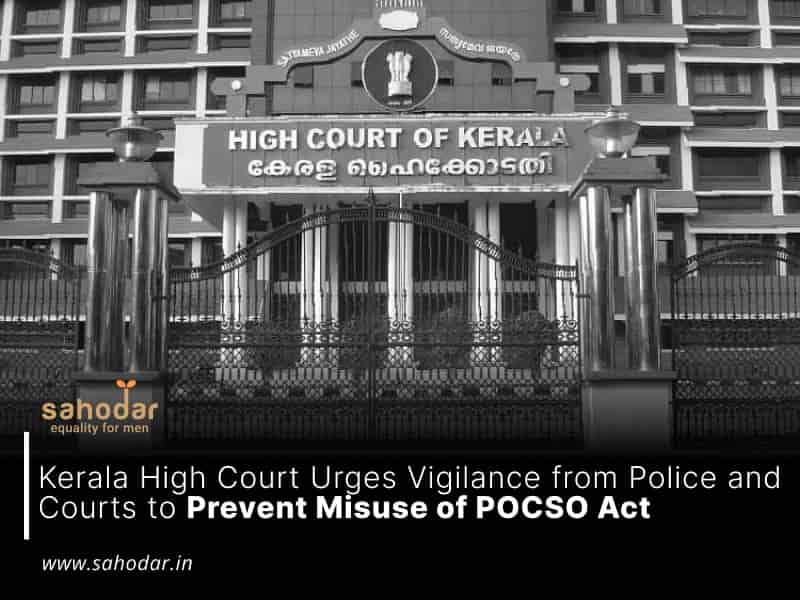The Court noted that scrutiny is essential for allegations made under the Act, to ensure that its harsh provisions are not misused to falsely implicate individuals.
The Kerala High Court emphasized the importance of vigilance among police and courts regarding individuals who may misuse the provisions of the Protection of Children from Sexual Offences Act, 2012 (POCSO Act) for personal gain.
Justice A Badharudeen highlighted concerns that the stringent penalties prescribed by the POCSO Act could potentially be exploited to falsely implicate innocent individuals, especially in cases involving personal vendettas or disputes related to matrimonial matters. The court underscored the risk of using children as tools to settle scores, cautioning against such misuse of the legislation.
“Remotely, for other reasons also, misuse of the provisions of the POCSO Act is being opted by some ill motivated litigants. Thus, chagrined and frustrated litigants should not be allowed to give vent to their frustration, by cheaply misusing the provisions of penal law. Therefore, the police officers and courts should always be very vigilant, while addressing the allegations, so as to separate husk from the grist.”
In this case, the petitioner faced accusations of using obscene language and making suggestive gestures towards a minor victim while she was in the courtyard of her residence.
He was charged under Section 294(b) (public obscenity) and Section 509 (insulting the modesty of a woman) of the Indian Penal Code, as well as Section 12 read with Section 11(i) of the POCSO Act (sexual harassment of a child).
Seeking to dismiss the case, he approached the High Court.
Upon reviewing the arguments and facts presented, the Court identified significant inconsistencies in the prosecution’s assertions.
The Court highlighted that the alleged incident took place in the private space of the victim’s courtyard, which did not meet the criteria for an offence under Section 294(b) IPC, which pertains to obscene acts in public places.
Furthermore, the Court noted that the allegations under Section 509 IPC and Section 11(i) of the POCSO Act lacked clear evidence of sexual intent.
“On perusing the sentence uttered, the same in no way suggest any sexual intent or words to outrage the modesty or to intrude upon the privacy of the victim. Even though there is allegation that some gestures shown by the accused using his tongue, what is the gesture, not disclosed to analyse whether the said gesture poses any sexual intent or something to outrage the modesty of the victim or intrude upon her privacy.”
The Court observed an ongoing rivalry between the accused and the victim’s father over roadworks, implying a potential motive behind the false accusation. Consequently, the Court granted the petition and dismissed all criminal proceedings against the petitioner.

